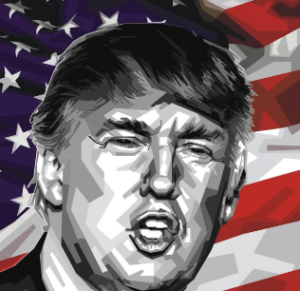$SPY $GOOGL $TSLA
#ChamathPalihapitiya #FederalBudget #BudgetCuts #InternetAccess #Trump2024 #ElonMusk #CostCutting #StockMarket #TechStocks #Economy #Crypto #Politics
Chamath Palihapitiya, the well-known venture capitalist and CEO of Social Capital, took to X (formerly Twitter) to lay out his vision for a fundamental restructuring of America’s federal budget. Palihapitiya’s proposal advocates slashing trillions of dollars in government spending and reallocating a portion of the savings to set up universal internet access across the nation. The tech mogul’s bold pitch aligns closely with the cost-cutting priorities often championed by both former President Donald Trump and Tesla CEO Elon Musk. Palihapitiya believes this strategy could revitalize the country economically and help set the stage for a tech-driven future, particularly if Trump secures victory in the 2024 Presidential election — a scenario that could shape upcoming fiscal policy.
By proposing such large-scale cuts, Palihapitiya taps into a broader financial debate about the mounting U.S. national debt, which exceeds $33 trillion. From an investor standpoint, reducing the federal deficit means less upward pressure on inflation and, by extension, interest rates. The spillover effects on markets like the S&P 500 ($SPY), which can be sensitive to government fiscal policy, could spur broad optimism in stocks if federal borrowing levels decrease. Lower government spending opens the possibility for stronger private sector growth. Specifically, tech giants such as Alphabet ($GOOGL), a potential key player in nationwide internet infrastructure projects, may stand to gain significant contracts if the government invests in this digital transformation.
Moreover, Palihapitiya’s focus on cost efficiency mirrors Elon Musk’s own penchant for fiscal discipline, evident in Musk’s aggressive restructuring at Twitter after taking control, as well as his laser focus on cutting operating expenses at Tesla ($TSLA). Both entrepreneurs seem united in the belief that innovation stems not from unchecked spending but from strategic, future-oriented investments. The emphasis on technology — particularly access to high-speed internet — could have a seismic impact on sectors like education, healthcare, and e-commerce, thus paving the way for new market entrants or facilitating growth in existing tech companies. With one-third of rural America still lacking broadband internet, this infrastructure overhaul could have ripple effects on where Americans work, shop, and access essential services.
However, Palihapitiya’s proposition likely faces political hurdles. Large-scale budget cuts are almost always met with striking opposition, particularly from sectors directly affected by the reduction in government funding, such as healthcare, social security, or defense. Politicians would need to carefully weigh the public’s tolerance for austerity against the potential economic upsides that a technology-focused spending realignment could bring. Investors in both traditional market segments and emerging tech spaces like cryptocurrencies may pay close attention if talks of a structural change in federal spending gain traction. While the markets typically react strongly to fiscal policy discussions, particularly initiatives that potentially lead to tech adoption, a cautious approach may still be prudent until clear policy signals are sent post-election.










Comments are closed.